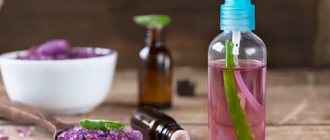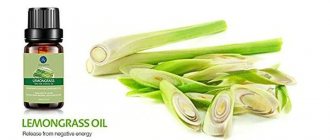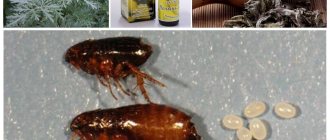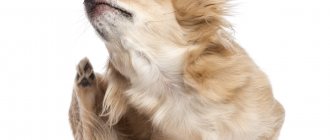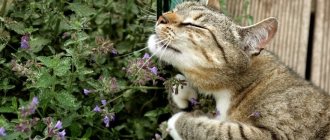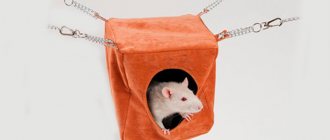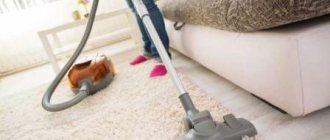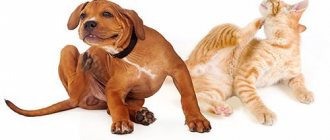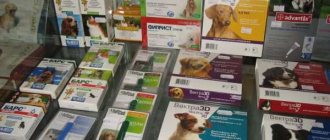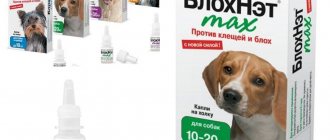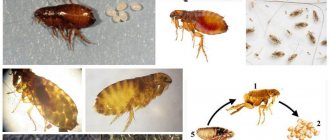There are many ways to get rid of fleas, but when it comes to living quarters or treating pets, the number of available methods is significantly reduced. Chemical insecticides, turpentine, kerosene, vinegar can pose a health hazard and therefore their use is not recommended.
An excellent alternative would be essential oils, which will not only help eliminate parasites, but also make the atmosphere at home more comfortable.
The principle of action of essential oils against fleas
Essential oils are a natural repellent that helps get rid of fleas. Blood-sucking insects do not tolerate strong odors, so they try to get away from their source. The method of getting rid of them using aromatic oils is based on this feature of parasites.
Important! The main thing to understand is that oils do not kill fleas and do not destroy larvae or eggs. The effect is that bloodsuckers leave the room in which an unpleasant aroma hovers.
Flea
Description and principle of operation
We all know that essential oils have a strong, bright aroma, which in this case is the active substance that fights fleas. It is also worth saying that the products have a very wide application, for example, they allow you to get rid of not only fleas, but also other types of parasites. Unlike other products, they are not capable of harming the health of people and animals, do not cause allergic reactions or side effects, and do not emit toxic toxins.
They operate as follows. Fleas have a very well developed sense of smell, they clearly perceive and distinguish odors, and are guided in search of a victim. But there are odors that they perceive as threats to life; it is precisely these aromas that are dangerous for fleas that are released by essential oils. Parasites try to leave the area as quickly as possible, and where there is an odor, fleas will never lay offspring.
Remember that essential oils can be used directly to treat residential premises; application to animals is prohibited. The fact is that if concentrated products are applied to a pet’s fur and he licks them off, they can cause poisoning.
In addition, a fairly strong aroma can irritate and affect the functioning of the receptors of animals, most often cats, as a result of which the pet may cease to distinguish odors. Therefore, when animals become infected, as well as as preventive measures, only specialized means are required.
What oils are effective against fleas?
It would take quite a long time to list which essential oils repel fleas, since the list is extensive. It has floral, herbal, pine, citrus aromas.
Eucalyptus
Fleas are almost more afraid of the aroma of eucalyptus oil than anyone else. The pungent smell of eucalyptus quickly spreads throughout the room, repelling insects. Eucalyptus oil can be used to treat floors, carpets, and furniture (including upholstered furniture). The product has strong disinfecting properties, and also helps strengthen the immune system and alleviate the symptoms of colds.
Juniper
Juniper oil is a good disinfectant. It helps not only drive away insects, but also reduce the risk of developing an infection at the site of the bite. The oil can be used not only to treat a room, but also to protect cats and dogs from fleas, since animals are quite loyal to the aroma of juniper.
Sagebrush
For fleas, you can use both wormwood oil and fresh herbs. Volatile substances irritate the nervous system of insects, forcing them to leave their homes. Considering the fact that wormwood has a rather strong, specific odor, it must be used with caution - it is best to place small containers with essential oil where there are especially many fleas or where they enter the house.
Lavender
The aroma of lavender quickly and effectively gets rid of fleas. Lavender oil has calming properties, so it can be used in the bedroom and even applied to bedding. But we must remember that the smell of lavender negatively affects hypotensive patients. It is better for them to use coniferous oils, for example, fir or cedar, which not only repel insects, but also have a positive effect on health.
Melissa
Melissa essential oil is one of the few types that can be used not only against fleas indoors, but also for treating pet hair.
Carnation
Fleas cannot stand the rich smell of cloves and try to get as far away from it as possible. But clove essential oil should be used with caution when getting rid of fleas in the room where cats live. Animals react negatively to the smell, causing them sleep disturbances and anxiety.
Other
In addition to those listed, the following oils help against fleas:
- tea tree;
- basilica;
- lemongrass;
- mint;
- rosemary;
- geraniums;
- celandine;
- anise
Coniferous aromas work well - fir, cedar, pine.
Industrial preparations insecticides
The modern chemical industry produces effective preparations with which you can not only rid your four-legged pet of these harmful insects, but also cleanse your living space from them.
When using insecticides, it is very important to take into account not only the destructive effect on fleas, but also the specific effects of these drugs on the body of a cat, dog, and other domestic animals. All these substances are quite effective, but differ in varying degrees of toxicity:
Highly toxic drugs are used to control insects, but only for treating infested areas in the apartment. Pyrethrins and pyrethroids insecticides are used to treat animals. The active substance in their composition is created on the basis of natural plant raw materials or its synthetic analogue. Therefore, such drugs are less toxic
However, they should be used especially carefully in the fight against parasites in cats. New generation insecticides are characterized by particularly low toxicity and relative safety for animals and humans
Recently they have become more popular.
Wormwood, perhaps the most famous representative of its genus, has found the most widespread use against fleas. It has the most persistent odor and contains the largest amount of bitterness and essential oils.
Very often, wormwood looks like very short grass, which is especially typical for meadows killed by livestock. It is most easily recognized by the characteristic very light color of the leaves.
Wormwood is harvested in any season, but most often in the summer. Brooms made from it are dried in the shade in a draft, and after that they retain their original scent for a long time.
A decoction of wormwood is prepared as follows: in two glasses of water, two tablespoons of crushed herbs are brought to a boil, after which the entire liquid is infused for several hours and cools.
It turns out to be very effective to combine wormwood with other herbs. For example, tansy against fleas together with wormwood has an enhanced effect, and in city apartments it is pleasant to place brooms of wormwood, mint and thyme together.
These same herbs can be used independently as an alternative to wormwood - their effect against fleas will be comparable to that of this famous bitter herb.
Rules for using essential oils
Before using essential oils for fleas, the apartment must be thoroughly cleaned - vacuum, wash the floors, get rid of cobwebs, dust, wipe all surfaces with a damp cloth, wash textiles and pet bedding, clean upholstered furniture.
Thorough cleaning
The oil will help get rid of insects if you follow a few recommendations:
- the optimal proportions of the solution against parasites are 5 drops of oil per 1 liter of water;
- Before you start treating the room, you need to protect yourself from insect attacks - use a spray bottle to spray your clothes and feet with the solution;
- apply the solution to all surfaces, not forgetting hard-to-reach places - under the bed, behind cabinets, in corners, in crevices behind the baseboard;
- It is necessary to treat not only hard surfaces, but also carpets and curtains.
The oil is effective as long as its aroma is felt, after which the processing procedure must be repeated.
How to use
Flea oils can be used in a variety of ways.
The optimal method should be chosen according to the task at hand. If there are a lot of parasites, it is recommended to pre-treat the clothes using, for example, eucalyptus oil. This will help protect your skin from stings.
Otherwise, you should adhere to these rules:
- First you need to prepare the room for the processing procedure. It is necessary to remove household members and pets from the home, and then carry out a thorough general cleaning. It is important to remove all carpets, blankets, and capes. It is best to wash them with hot water, then apply a small amount of oil, previously diluted with water, using a spray bottle. Next, vacuum the entire room, paying special attention to nooks and spaces behind furniture.
- Next you need to carry out wet cleaning. To do this, you should prepare a special solution by diluting fifty drops of any oil in five liters of clean warm water. Treat the entire room with the resulting solution, including furniture, windows, and floors. When soiled, the water should be poured out and replaced with a clean solution.
- To obtain an effective insecticide, it is recommended to use a mixture of aromatic oils. The only drawback is that the smell is too strong. It is best to mix pine oil, citrus oil, anise oil. Tea tree extract is especially effective against fleas.
- After completing the treatment, it is important to take preventive measures that will help prevent the reappearance of parasites. To do this, you need to prepare bouquets of dried herbs or sachet pads, which may also contain dried plants. It is best to use herbs such as calendula, mint, and St. John's wort for this purpose. The raw materials should be prepared in advance, having dried them thoroughly; fresh plants should not be used. After the herbs have dried, you need to apply a few drops of tea tree extract and pine needles to them. This measure will help prevent the appearance of parasites in the house.
- Prepared bouquets or pillows should be placed in closets with bed linen, in the space behind the furniture, that is, in all the nooks and crannies of the apartment.
- After general cleaning, it is especially important to treat all surfaces in the room, that is, furniture, textiles, carpets. To do this, you need to prepare a more concentrated solution with insecticidal properties, namely tea tree. It would be optimal to add fifty drops to a glass of warm water. All surfaces should be thoroughly treated with the resulting solution using a spray bottle.
- After treating the premises, it is necessary to thoroughly ventilate the rooms. It is important to remember that the use of extracts will help get rid of adult parasites, but will not have a detrimental effect on the larvae. That is, the likelihood of fleas reappearing is quite high, especially if a large number of insects were previously observed. To prevent this, it is recommended to re-treat the room approximately two weeks after the first.
Essential oils are among the strongest allergens. It is not recommended to use them if pregnant women and children live in the apartment, since inhalation of aromatic vapors can provoke the development of a severe allergic reaction.
However, using these products in small quantities to prevent the appearance of parasites is quite acceptable.
Using an aroma lamp
Various flea oils can be used to create a pleasant atmosphere in the house, which will help get rid of parasites and prevent their occurrence in the future.
To repel insects, you can use extracts of cedar, eucalyptus, tangerine, and lemon.
Essential oil against fleas in the house should be used as follows: dilute a small amount of the selected product with water, then pour it into an aroma lamp, light a candle or heat the liquid tray in another way. The lamp should be kept on for several hours.
Curtain processing
When treating a room, fleas jump onto walls, curtains, and other surfaces located high enough above the floor. It is especially important to use flea oil on curtains; this measure will help completely remove parasites from the house.
To carry out the procedure, add twenty to twenty-five drops of the selected product to a liter of warm water, then mix the resulting solution thoroughly and pour it into a spray bottle.
After preparation, you should carefully spray the curtains with a fragrant solution, you can also treat the walls. It should be remembered that it is recommended to apply the solution from a distance of at least half a meter, otherwise dark stains may remain on the fabric.
To treat curtains and other home textiles, it is recommended to use lemon and lavender oil. These products not only have insecticidal properties, but also keep a pleasant aroma in the house for a long time.
How to make the fight against fleas in the house more effective?
You can enhance the effect of using essential oils to get rid of fleas in your apartment in the following ways:
- after general cleaning, it is necessary to clean the vacuum cleaner and immediately take out the garbage, otherwise insects may spread throughout the house again;
- When starting the fight against parasites, you need to not only treat the apartment, but also wash your pets with anti-flea shampoo or put on special collars for them;
- Fleecy surfaces should be treated with special care: floor coverings, carpets and door mats, bedding and pet houses
Using mixtures of several oils, you can make pest control more effective. Popular combinations:
- mint and lavender;
- clove, lavender and tea tree;
- mint, lavender and eucalyptus.
Regular use of the aroma lamp will help to consolidate the results.
How long do fleas live without animals?
Many of our compatriots who, due to certain circumstances, find themselves victims of an invasion of bloodsuckers often ask the question: how long do fleas live in an apartment? The answer to this question largely depends on the environmental conditions in which insects develop.
Life cycle of fleas
Experts emphasize: optimal conditions for reproduction are relative air humidity of 80%, temperature range from 20 to 25 degrees. If the temperature is not adjusted in one direction or the other, then bloodsuckers begin to actively develop and give rise to a new generation
Let's highlight a few important points:
- Increasing the temperature to values from 35 to 50 degrees Celsius can reduce the life cycle by 40%. As a result, insects grow very large in size.
- The lifespan of bloodsuckers decreases with decreasing temperature. They live up to 1 year, if we are talking about critical temperatures. Adult pests cannot fully develop and, in comparison with ordinary relatives, they are much smaller.
Apartment fleas: photo
How long can fleas live in an apartment without food? Without access to warm-blooded animals, they can survive for no more than 40 days, and they can no longer reproduce. Due to such an unusual mechanism, it is possible to preserve several populations of bloodsuckers.
Fighting itching and pain from bites
Essential oils can also be used to treat insect bites. The most popular oils are tea tree and lavender, which are used to lubricate the bite site. They reduce inflammation and relieve itching. The product can be used pure or mixed with base oils, such as olive, jojoba, and wheat germ.
On a note! First you need to make sure that there is no allergic reaction to the selected oil. For the test, a small amount is applied to the skin in the wrist or elbow area.
But it is better not to use essential oils for flea bites on cats and dogs. The cat's body may respond inadequately to such treatment, causing severe skin irritation or impaired olfactory functions. The best option is special products for animals.
Fleas on cats
It is easy to detect fleas on a cat's body by simply looking at its fur. This can also be seen in the behavior of the animal. An infected pet behaves restlessly, irritably, sleep is disturbed, appetite worsens, and the cat often rubs its ears and eyes with its paws.
The fur of cats and dogs is an ideal environment for insects to live and reproduce. An elevated body temperature of an animal is comfortable for life. Wingless insects move very quickly between the hairs and jump high thanks to their strong legs. The entire body of the flea is covered with ridges of spines, and the body is covered with a hard shell. This is the most numerous and adapted species of fleas to survive. To survive, parasites feed on the blood of cats and dogs. They reproduce at a tremendous speed: only one female hatches up to four hundred eggs.
Safety measures when disinfesting with aroma oils
Despite the fact that essential oils are a completely natural product, when using them against fleas in the house, you must take precautions:
- follow the dosage, dilute the oil according to the instructions;
- use a small amount of product;
- do not inhale concentrated vapors;
- Before first use, check if anyone living in the house (including pets) is allergic to the selected oil.
Attention! Aroma oils are not recommended for use in the presence of pregnant women and small children.
Ventilation
If, after treating the room, one of the household members feels unwell (dizziness, headache, nausea), it is necessary to thoroughly ventilate the room and continue to use other means.
Precautionary measures
Essential oils are powerful, so it's worth knowing the precautions. Consequences of improper use:
- exceeding the dosage leads to signs of poisoning: nausea, vomiting, weakness;
- inhalation and application of concentrated oil to the skin causes irritation, damage to the skin and nasal mucosa.
You should avoid them if a family member has asthma or allergies, the woman is pregnant, or has small children. If there are signs of intolerance to the product, you should immediately stop using it.
Before use on the human body or animals, a sensitivity test should be performed. You should buy essential oils in specialized stores or pharmacies. This is an affordable and harmless, if used correctly, means of protection against fleas.
Advantages and Disadvantages of Using Essential Oils
The use of aromatic oils has a number of positive and negative features. The advantages include:
- natural composition, lack of aggressive effects on the human body and pets;
- the ability to choose the scent to your liking (an additional plus is the pleasant smell in the apartment);
- availability, large selection and wide range of prices;
- ease of preparation of an oil-based product, no need for protective equipment (gloves, mask, respirator).
Main disadvantages:
- individual intolerance or an allergic reaction is possible in both people and animals;
- aromatic oils do not affect eggs and larvae, so the treatment will need to be repeated after a few days.
Another disadvantage of this method is that it cannot be used if there are children under 1 year of age in the house.
Reasons for their appearance
Attention! To protect your home from carpet parasites, you must:
- Constantly monitor the health of your pets, periodically bathe them with anti-flea shampoo;
- for preventive purposes, you can periodically wash the floors with a wormwood solution;
- keep the house clean, ventilate, and carry out wet cleaning;
- avoid excessive humidity;
- monitor the condition of attics and basements. If rats are spotted, call an exterminator immediately.
It is extremely difficult to protect yourself from the appearance of blood-sucking pests. In the environment, these insects are common; there are many “specialized” species: dog, cat, bed and other types of these blood-sucking insects. In the absence of a main “source” of food, any warm-blooded animal can become a victim of a flea, so even dog fleas can bite a person.
Main factors of infection:
- Flea eggs are brought from the street on shoes, clothes, and other things.
- Old furniture, rugs and other home textiles can also be a good home.
- An unpleasant “surprise” may also await you on your pet’s fur after a walk.
In outdoor conditions, the life cycle of insects changes significantly. Eggs and larvae are extremely sensitive to low temperatures and ultraviolet radiation. They are able to develop only in conditions that are comfortable for themselves, the main ones being heat and high humidity. This is why the basements of apartment buildings are often infested with fleas, which poses a direct threat to the residents of the first floor. In the private sector, the threat only increases; there is always the risk of bringing in uninvited guests straight from the street.
Oil-based medicines
While aromatic oils can be used to treat a room against fleas, it is not always safe to use them to get rid of bloodsuckers from pets. If the product gets on the skin, it can cause irritation, the strong smell will cause discomfort to the pet, and if it tries to clean the fur and starts licking the medicine off, it can become poisoned.
Aroma oils
Special preparations containing essential oils will help protect your pet. The most popular include:
- Beaphar (spray or shampoo);
- Doctor ZOO (shampoo);
- Bars (shampoo);
- GreenFort (shampoo).
When using a new product for the first time, you must carefully monitor your pet’s condition to notice possible manifestations of allergies.
Signs of a flea infestation
Dog fleas are wingless ectoparasites that cause a lot of suffering to your four-legged pet. Before using this or that remedy, it is worth finding out what parasite is bothering the dog: fleas, lice or lice. Distinctive features of dog fleas:
- flat body under a chitinous shell;
- long bristly legs;
- size about 4 mm;
- color – reddish brown;
- capable of jumping in wool.
The animal's behavior becomes restless. The bites of blood-sucking parasites cause severe itching. The dog scratches and chews the wounds.
Traces of fleas are found in the animal's fur: excrement, larvae, eggs. With a large number of fleas, severe skin lesions occur in the form of dermatitis, weeping eczema, and alopecia. Constant loss of blood leads to exhaustion of the animal.
The pet is unable to cope with rapidly multiplying parasites on its own. Need immediate help. You can remove fleas from your dog at home using folk remedies.
Aromatherapy is not only effective in treating dog illnesses, but is also a good hygiene product.
Dogs have about two hundred million olfactory receptors, and even purebred dogs can smell about ninety medicinal plants that grow in nature.
If you offer your pet, who has a digestive disorder, a choice between medications and essential stomach oils, the dog will choose the latter, since this smell is embedded in its hereditary memory.
However, keep in mind that your four-legged friend's nose is several times more sensitive than yours, so approach the dosage with caution.
Rules for using essential oils for dogs
Dosage
Dogs' sense of smell is much stronger than that of humans, so the exact dosage must be observed; as a rule, it is less than for an adult.
Quality
Choose only 100% natural essential oils; the article .
Reaction
When using essential oil for the first time, observe your dog and if you notice any strange behavior or reaction, stop using the oil.
Specialist consultation
If you are concerned about using essential oils on your pet yourself, consult your veterinarian.
Treating dog diseases with essential oils
Colds in dogs
Dogs suffer from colds, coughs, and pneumonia. In these cases, the best treatment effect is achieved by using eucalyptus, tea tree and thyme .
You can use two application methods:
- Rubbing into the dog's chest and neck;
- Inhalation of water bath vapors.
When using any method, it is necessary to remember that the dog is highly sensitive to odors, so start with small doses and gradually increase.
- tea tree - 2 drops;
- eucalyptus - 2 drops;
- thyme - 1 drop.
Start with one drop of the mixture per teaspoon of vegetable oil, then two drops, three drops. Four drops is the maximum dose. You need to rub it from the belly to the shoulders into the skin of the animal. Long-haired animals should rub the oils in the form of a vodka solution - two drops of the mixture per one teaspoon of vodka and two tablespoons of water. Rub in twice a day for 3-4 days.
The animal's bedding must be washed by adding three drops of eucalyptus and three drops of tea tree to the water.
Arthritis (inflammation of the joints) in dogs
Arthritis hurts dogs just as it does people. Using gentle massaging movements (dogs love massage), rub the following mixture twice a day into the area of the affected joint, from bottom to top along the paw:
- rosemary - 4 drops;
- lavender - 2 drops;
- juniper - 3 drops.
dissolve in two tablespoons of vegetable oil - daily dose.
Don't worry if your dog licks the oils after a while. The oil will have a greater effect over the joint, penetrating into the skin. We recommend placing a cabbage leaf on the joint and changing the bandage 4-6 times a day.
Treatment of wounds, cuts and scratches in dogs
Pets are very receptive to natural scents that help heal wounds. Oils will help clean the wound, stop bleeding, and act as antibiotics and antiseptics. It is very important to remove all dirt from the wound.
Treatment of wounds in dogs
If your dog has itchy eczema, wounds or ulcers, you should rub the following essential oil mixture onto the sore areas. This mixture will bring healing and relief. In addition, the animal will become less susceptible to insect bites.
to 50 ml of vegetable oil :
5 drops of lavender; 5 drops of tea tree.
Rub this mixture onto the affected areas three times a day until the wounds are completely healed.
Treating scratch marks on dogs
- 4 drops of lavender;
- dissolve in a teaspoon of vegetable oil.
Treat areas of scratching and irritation on the skin.
Treatment of cuts in dogs
- 6-8 drops of lavender or thyme;
- 200 ml of warm boiled water.
First, you need to treat the cut with hydrogen peroxide, and then treat the area of the cut or scratch with an aqueous solution of thyme or lavender.
Bandage on the wound
- lavender - 1 drop;
- tea tree - 1 drop;
- lemon - 1 drop.
Dissolve essential oils in 1 teaspoon of vegetable oil . Moisten the bandage and apply to the wound.
If the dog's wound festers
First, thoroughly wash the wound with a solution of lavender oil:
- 4 drops of lavender;
- 150 ml warm boiled water.
Then apply an ironed cabbage leaf to the wound, do not forget to change it 4-6 times a day. Afterwards, wash the wound with the same aqueous solution of lavender and apply a bandage with oils to the wound:
- 2 drops of tea tree;
- 1 drop of thyme;
- 1 drop of rosemary.
Dissolve the oils in 1 teaspoon of vegetable oil , moisten the bandage and apply to the wound.
Essential oils for fleas and ticks on dogs
Essential oils repel fleas, ticks and other small parasites. Fleas and ticks can be a big problem for your dog. Aromatic oils will not only rid the animal of fleas, but will also keep the dog's fur in good condition.
Flea and tick comb mixture
- lavender - 1 drop;
- thyme - 1 drop;
- eucalyptus - 2 drops;
- dissolve in one teaspoon of vodka.
Moisten a cotton swab with the mixture, put it on the entire width of the comb and comb the wool well. It is enough to do it once a week for dogs, and for cats before a summer trip to the country.
Removing ticks from dogs using essential oils
Ticks can be easily removed using tea tree oil, lavender or thyme . Apply a drop of undiluted oil to the tick and use a counterclockwise circular motion to remove it.
Shampoo for dogs against parasites
- 200 ml shampoo;
- 20 drops of a mixture of tea tree, lavender, cypress, thyme oils.
Insects are also repelled by the smell of camphor oil , wormwood oil, vetiver, tansy, and sage . A recognized flea repellent is pennyroyal .
Anti-tick collar oil mixture
- lavender - 1 drop;
- thyme - 2 drops;
- dissolve in one teaspoon of vegetable oil.
Lubricate your pet's collar with this solution daily.
Flea collar oil mixture
- lavender - 1 drop;
- oregano - 1 drop.
- dissolve in one teaspoon of vegetable oil.
Lubricate your pet's collar with this solution daily.
Dog ear care
Inflammatory ear diseases usually occur in dogs due to the accumulation of large amounts of wax in them. Accumulating in the external auditory canal, it irritates the skin of the ear and, if not removed in time, leads to disease. Ear pain is not only unpleasant, but it can affect the character of the animal. The fetid odor irritates and embitters the animal, and constant itching and noise in the ears leads to scratching and wounds of the auricle. Ears must be disinfected and deodorized.
The best oil for this is lavender .
Ear drops for dogs
- 3 drops of lavender;
- 1 teaspoon vegetable oil.
Place 5 - 10 drops (depending on the size of the animal) into each ear. Then place cotton swabs in your ears and treat the entire ear with the solution. Repeat this procedure daily to soften the earwax, then it should be removed using a cotton swab on a stick. After the dog stops experiencing discomfort, shaking its head, and scratching its ears, carry out preventive treatment once a week.
Teeth and bad breath in dogs
Drooling and bad breath indicate that your dog has dental problems. Your dog's teeth should be checked and cleaned with regular baking soda; essential oils will provide an opportunity to keep teeth clean and remove tartar. For this, the following mixture is proposed:
- 2 tablespoons of baking soda;
- 1 drop of cloves;
- 1 drop of rosemary.
Mix well. Clean your dog's teeth with a cotton swab, which is better than using a toothbrush to avoid damaging the gums. Then wipe off any remaining mixture and give your dog a drink of water.
This procedure should be done for preventive purposes no more than once a week.
Bad breath is not always caused by poor dental health; it can be caused by various stomach problems. In this case, you can safely use peppermint . It is an excellent intestinal cleanser and digestive aid.
To do this, just rub a drop of pure oil on the line from under the ear to the shoulders.
Aromatherapy for dogs
Animals, like people, are subject to mood swings and stress. With the help of essential oils you can have a positive effect on the mood and well-being of your pets.
Animals have an extremely acute sense of smell, and therefore they detect the aroma of essential oils even in the smallest concentrations.
The most suitable means of aromatherapy for pets is a kerosene lamp, since essential oils evaporate slowly and in small quantities.
Relaxing mixture for kerosene lamp
- Melissa essential oil - 2 drops;
- lavender - 1 drop;
- chamomile - 1 drop;
- bigaradia - 1 drop;
- tangerine - 1 drop.
Tip: if there is a persistent smell of an animal in the room, then, in order to get rid of it, place an aroma lamp in the room with 5 drops of geranium essential oil.
Literature: 1. Allison England. "Aromatherapy for mother and child." 2. Anastasia Artyomova. “Aromas and oils are healing and rejuvenating.” 3. Vladislav S. Brud, Ivona Konopatskaya. “Scented pharmacy. Secrets of aromatherapy." 4. Denis Vicello Brown. "Aromatherapy". 5. Lavrenova Galina. “Inhaling a wonderful aroma. Aromatherapy is a pleasant and easy way to heal.” 6. Leonova N.S. "Aromatherapy for Beginners." 7. Libus O.K., Ivanova E.P. "Healing Oils" 8. Tatyana Litvinova. "Aromatherapy: A Professional Guide to the World of Smells." 9. Novoselova Tatyana. "Aromatherapy". 10. Dmitrievskaya L. “Deceiving age. Rejuvenation practices." 11. Kedrova Maria. “Fragrances of beauty and health. Secrets of Cleopatra. 12. Nikolaevsky V.V. “Aromatherapy. Directory". 13. Semenova Anastasia. "Treatment with oils." 14. Edited by Zakharenkov V.I. "Encyclopedia of Fragrances". 15. Carol McGilvery and Jimmy Reed. "Basics of aromatherapy." 16. Wolfgang Stix, Ulla Weigerstorfer. "In the Kingdom of Smells" 17. Mirgorodskaya S.A., “Aromalogy: Quantum Satis.”
Interesting articles:
- Essential oils for cats
- DIY aromatic herbal pillow for sleep
- Basic base oils
- Cake "Prague" caramel
- Chocolate cupcakes with chocolate cream
- Chocolate coffee cupcakes with buttercream
comments powered by HyperComments
Tagged with: aromalogy, pets, essential oils
Impact effect
Treating furniture with essential oils
Essential oils for fleas are used very often in the apartment due to their universal effect. These products are characterized by a rather pungent odor that insects cannot tolerate. There cannot be fleas in the areas where these medications are used.
It is recommended to use essential oils against fleas in their pure form in extremely rare cases. Most often, the product is diluted with water and used to treat the room. In order to eliminate insects, it is necessary to treat the room completely. Essential oils for fleas in the house should be used every few days. This is explained by the fact that they do not act on eggs. This is why new parasites have to be repelled again and again.
In order to combat parasites, it is recommended to find out which essential oils repel fleas? Products based on mint and eucalyptus, as well as cloves, lavender, and tea tree are quite effective. If desired, you can prepare an insecticide from lavender, mint and cloves or lavender and eucalyptus.
Thanks to the availability of several recipes for preparations based on essential oils, it is possible to choose the most suitable option for a person.
The most effective and popular remedy for fleas, as mentioned above, is considered to be wormwood. It is easy to buy, the smell emitted by the plant does not irritate the sense of smell, and medicine based on it can be either purchased in a store or made independently. To do this you will need:
- we buy wormwood at the market or in a specialized store;
- finely chop with a knife;
- pour the crushed product with oil (preferably olive);
- Place the container on the stove and slightly heat the liquid. Do not boil it under any circumstances, just heat it up;
- pour the medicine into a glass container, seal it with a lid and put the container away for 1-1.5 weeks in a cool place not exposed to direct sunlight.
No less popular are mixtures based on:
- mint;
- tea tree;
- lemon;
- geraniums;
- eucalyptus;
- carnations.
Note! A list of the most effective components is listed, but, if necessary, any aromatic oils will do as a medicine.
Homemade medicines are diluted in water in a ratio of 20 drops of the substance to 1 bucket of water. This remedy will help you quickly and effectively get rid of parasites without causing inconvenience to other family members.
The fight against fleas in the house should be comprehensive. In addition to using essential oils, do not forget about cleaning the room. It is necessary to thoroughly wash and clean all carpets (including pet rugs) and vacuum the apartment. Be sure to remove the bag of garbage from the vacuum cleaner and place it in a sealed plastic bag and place it in a trash container, this is necessary to prevent fleas from running away and returning to the house.
Pets - cats and dogs - are also carriers of fleas. Therefore, if you decide to fight fleas, wash your pets with a mild anti-parasitic shampoo.
The favorite habitat of fleas is fleecy materials - carpets, including wall carpets, linens, pet bedding, shoe mats. Therefore, these household items must be processed first. One of the names of indoor fleas - basement flea - fully justifies itself.
Thorough cleaning of the premises will make the fight against fleas more effective.
We use essential oils against ticks for people and dogs
With the onset of warm days, many people want to go outdoors. Unfortunately, holidays outside the city, despite all its attractiveness, are accompanied by encounters with ticks, the activity of which has been very high lately. Tick sucking is not only unpleasant in itself, but also poses a considerable danger, since they are carriers of such serious diseases as encephalitis, borreliosis, ehrlichiosis, so it is extremely important to protect yourself from their bites. Essential oils are an effective means of protection, the use of which will protect against tick bites without endangering human health. You can find a list of essential oils for ticks and how to use them in this article.
Traditional methods against apartment fleas
People tried to get rid of blood-sucking insects back in the Middle Ages. The surest way to get rid of fleas was considered to be spreading an old hare skin on the floor .
Periodically, when parasites accumulated on it, it changed. Rich people wore small pieces of rabbit skin around their necks . Adult insects accumulated on them, after which they, along with an improvised medallion, were burned in the fire.
Modern methods can be used in combination with each other or separately. Among folk remedies and methods of pest control, the following categories are distinguished :
- plants;
- aromas;
- household chemicals;
- antiseptics;
- temperature methods.
For each of the above methods, you need to know how to prepare the product and use it correctly. We must not forget that products with plants used for fleas lose their beneficial qualities quickly, so it is recommended to use them immediately after preparation.
The main advantages of traditional methods:
- Possibility of preparing them yourself.
- Safety for people and pets.
- Fast and effective pest control.
Reference ! Based on the principle of their effect on parasites, products are divided into two groups: those that destroy insects and those that repel them.
